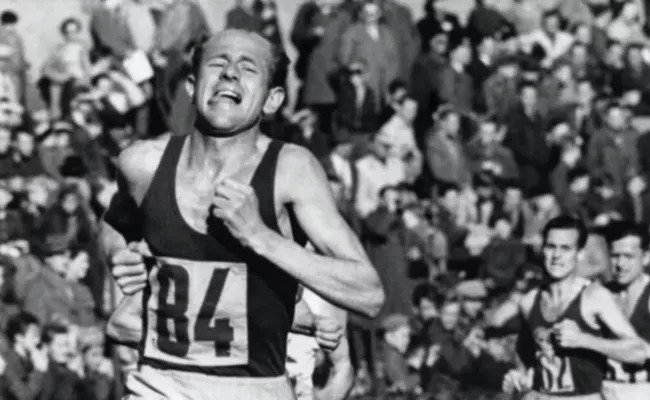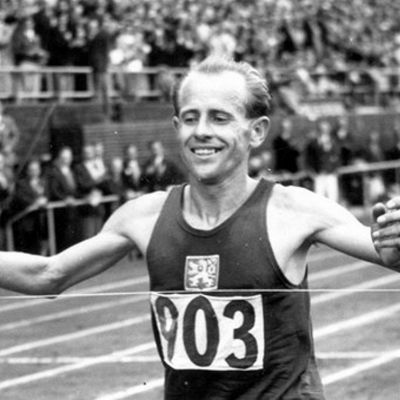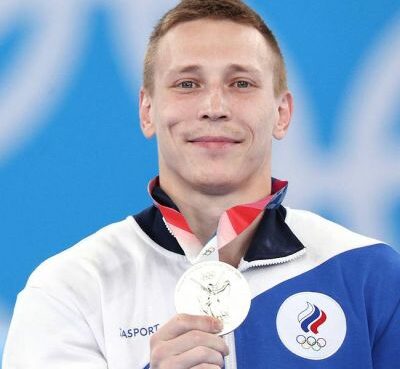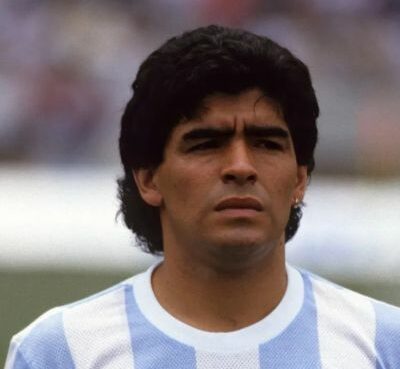Table of Contents
Who is Emil Zatopek?
Emil Zatopek lived his life the way most of us would like to live it, from the beginning to the end. Emil Zatopek’s net worth is estimated to be between $1 and $5 million. It’s no wonder that he’s one of history’s most successful runners.
As a result, Emil is one of the wealthiest and most popular athletes of all time.
This great runner was born on September 19, 1922, in Moravia, Czechoslovakia, and died on November 22, 1978, at the age of 78, from brain hemorrhages and strokes.
Monetary value
Topek, who is now considered a legend, began his running career while working at the Bata shoe factory.
It happened when their sports manager’s coach asked him and three other kids to compete in a 1500-meter race.
He didn’t like running at first, but he had a strong desire to succeed, and Emil grew to appreciate it over time.
Because Emil lacked innate abilities, he had to rely on his determination.
Salary and Earnings
Emil Zatopek’s net worth is estimated to be between $1 million and $5 million, as previously indicated.
However, nothing is known because he preferred to keep things quiet.
According to several studies, Emil’s income was entirely dependent on his main career as a runner.
He did, however, serve in the Czech army.
Career and Partnerships
Even though Emil Zatopek kept his personal life private, his earnings can be estimated based on his employment history.
He ran full-time and also served in the army.
Similarly, a senior-level runner in the Czech Republic earned around 470,238 K (USD 22,077). (USD 22,077).
And “the bouncing Czech” is a well-known international senior runner.
So, we can reasonably predict that he must be highly compensated during his career.
Emil continued his army career after returning from his primary vocation as a runner.
In 1964, he was promoted to Colonel.
The former runner even held a job at the Ministry of Defense.
Lifestyle & Vacations
Zatopek was honored as the Greatest Runner of All Time by Runner’s World magazine in 2013.
Despite being considered the best runner of all time, Emil Zatopek was not the most naturally talented athlete.
He lacked sheer speed; his long-distance counterparts Gaston Reiff of Belgium and Christopher Chataway of the United Kingdom were seven and nine seconds faster, respectively.
Emil’s resting pulse rate was around the mid-fifties when he started his profession, and his blood pressure was high.
In other words, he was a typical person who lacked a natural knack for running.
Emil’s perseverance, inner strength, and drive to keep pushing forward made him the greatest.
Zátopek always thought that the “if a guy wants to change, he can achieve” mentality was all that was required; all it took was an effort, dedication, and willpower.
Emil, on the other hand, improved both physically and emotionally.
Finally, Zatopek spent his entire life practicing, not taking a single day off due to laziness.
The acclaimed athlete has no vacation records since he is continually focused on his career and training rather than taking time off.
Book Publication
Emil Zapotek, the most excellent runner of all time, could not be forgotten.
His life has been covered in two novels. The two pieces are Richard Askwith’s “Today We Die a Little: The Rise and Fall of Emil Zátopek, Olympic Legend” and Rick Broadbent’s “Endurance: The Extraordinary Life and Time of Emil Zátopek.”
Both volumes are highly recommended for reading because the author discusses Emil’s life.
It also describes how he taught his mind and body every day despite the dearth of intrinsic skills.
Emil’s unrelenting devotion also helped him win five gold at the Olympics.
He won gold and silver in the 10,000-meter and 5,000-meter races, respectively, in 1948.
Emil also won three gold medals at the 1952 Olympics, in the 10,000-meter run, the 5,000-meter run, and the marathon.
His training and hard effort were the keys to his success.
Zatopek also achieved it without the support of a coach or a training partner because no one could keep up with him.
Childhood & Education
Emil Zatopek was born and grew up in Koprivnice, Czechoslovakia, on September 19, 1922.
Zatopek was born into an underprivileged household and was compelled to begin working at 16 to help support his family.
He was the family’s sixth child.
In Zlin, he received his first work in a Bata shoe factory.
This is where he began his running career.
The factory’s sports coach invited him and three others to compete in a 1,500m race one day.
He refused to run, arguing that he was ineligible and weak.
He was issued a ‘No Ailment Certificate’ after a doctor’s examination.
Now Zatopek had no choice but to run, and he did it excellently by coming second in the race.
Career
Emil, like everyone else, missed some of the best years of his career while the Germans controlled Czechoslovakia during WWII.
But, even on those days, he was hard at work training and improving his running.
Emil made news for the first time at the London Olympics when he was 26 years old.
In that game, he earned a gold medal in the 10,000-meter race and a silver medal in the 5,000-meter race.
Zatopek’s middle-distance running career increased after winning the race in 1948 as he continued to shatter world records.

It was the 1952 Helsinki Olympic Games, which would prove to be Zátopek’s most astounding achievement.
Emil pulled off one of the most remarkable Olympic exploits imaginable, one that will never be replicated.
Due to a gland infection, Zátopek was advised he couldn’t play two months before the game.
He ignored the doctor’s orders and got three gold medals in the process.
Emil Zatopek held eight world running records at the end of 1953, making him the only guy to welcome so many records at the same time. He broke 18 world records in all.
Personal Life
Dana Zátopková (born the same day and year as her husband) is a gold medal holder in the javelin throw in the 1952 Olympics, only seconds after Emil won the 5,000 m; she finished second at the 1960 Olympics.
Emil tried to credit his wife’s Olympic achievement during her news conference, stating that his victory in the 5,000 m had “inspired” her.
Dana’s outraged reaction was, “Is that true? Okay, go motivate another girl and see if she can throw a fifty-meter javelin!”
Zátopek was noted for his outgoing demeanor and ability to speak six languages.
International athletes that he had met at events made his regular visits to his residence in Prague.
Gordon Pirie, a British opponent, dubbed it “the merriest and gayest mansion I’ve ever been in.”
In Prague in 1957, Emil and Dana were witnesses at the wedding of Olympic gold winners Olga Fikotová and Harold Connolly.
Furthermore, during the zenith of the Cold War among the countries, Emil had approached Czechoslovak President Antonn Zápotock, demanding aid in securing a permit for national heroine Olga to marry American Connolly.
While it’s unclear how much this helped, they gained approval unexpectedly a few days later.
Visit Ron Clarke at his Emil’s place
When Australian Ron Clarke traveled to Prague for a race in 1966, Zátopek hosted him.
Zátopek was well aware of Clarke’s dismal luck.
He possessed multiple middle-distance world records and had sought to join his idol in the record books but had failed to win an Olympic gold medal (Billy Mills beat him in one of the biggest upsets in Olympic history) (Billy Mills beat him in one of the biggest upsets in Olympic history).
After the visit, Zátopek presented Clarke with one of his gold medals from the 1952 Olympics.
Death and Legacy
Zátopek died of symptoms following a stroke on November 22, 2000, in Prague at 78.
Leading figures from the international sports scene attended his funeral at Prague’s National Theatre.
In 1975, Zátopek got the Pierre de Coubertin medal (“True Spirit of Sportsmanship”).
He was one of the first twelve athletes accepted into the IAAF Hall of Fame in 2012.
In September 2014, a life-size bronze statue of Zátopek was unveiled in Zln’s Stadium of Youth.
Also, read Khalil Rountree, Priscila Cachoeira, Rafael Fiziev
Fun facts:
Even though he won a lot, he never had any trophies at home.
All of Zatopek’s awards were presented to friends, supporters, or random people.
Zatopek’s one-of-a-kind triple Olympic gold medals garnered him widespread adoration, which saved him from penalties.




